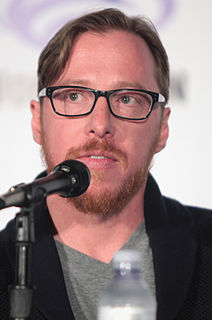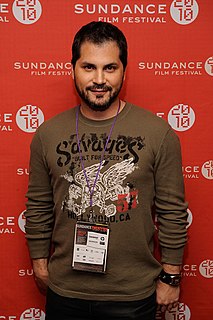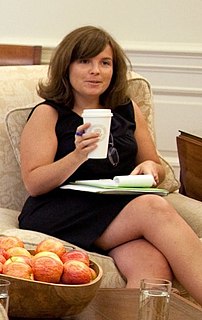A Quote by Richard Flanagan
The fallacy is that you have to hold some sort of stake in the grief or horror in order to write about it - I think the opposite is true.
Related Quotes
I don't really get philosophical, but I believe that nice people are strong and usually in my horror stories, I don't like to write about the old standard where some rotten guy gets chased by a mean spirit that gets him in the end.I'd rather write about nice people that are menaced from outside by some sort of evil power and who sort of slug it out.
I think what I was unconsciously expressing in 'Black Rainbow' was a very abstract and metaphorical grief, in the way I had suppressed my grief about my mother dying. In retrospect I realise I started writing 'Mandy' as a sort of antidote to that, to sort of express those emotions, to purge that grief.
I'm not sure if I could tell the difference—between just staring into space and thinking. We're usually thinking all the time, aren't we? Not that we live in order to think, but the opposite isn't true either—that we think in order to live. I believe, contrary to Descartes, that we sometimes think in order not to be. Staring into space might unintentionally have the opposite effect.
I find that I end up liking songs if I really have an idea of something I wat to write about-some problem in my life or something I want to work through; if I don't have something like that at the root of the song, then I think I end up not caring about it as much. I gravitate towards some kind of concept or idea or situation that I want to write about. Very often I have to write, rewrite and come at it from an opposite angle...and I end up writing the opposite song that I thought I was going to write.
In order to write about the machine you have to know it, to live with it, to love it (or hate it). I think that true writing could be done on industrial subjects by people who work in industry, who are firmly linked with it. But ... and here is the opposite 'but', the technology of literary craftsmanship is itself a very fine and complex matter. Qualified specialists from industry prove themselves dilettantes in the field of literature. The needed synthesis is not yet in sight.
The definition of horror is pretty broad. What causes us "horror" is actually a many splendored thing (laughs). It can be hard to make horror accessible, and that's what I think Silence of the Lambs did so brilliantly - it was an accessible horror story, the villain was a monster, and the protagonist was pure of heart and upstanding so it had all of these great iconographic elements of classic storytelling. It was perceived less as a horror movie than an effective thriller, but make no mistake, it was a horror movie and was sort of sneaky that way.
I think that if you look at all of the books that have ever been written about people working in the White House, they're sort of the opposite of my book. And I think that so many people want to write a book that sort of memorializes their place in history. And I wanted to write something for all of the women who are like me. I grew up in upstate New York, I graduated high school with 70 other people and didn't ever know that anything like this would have really been an option for me. So I wanted other young women — and men — to know that just being you is plenty.




































